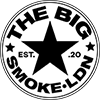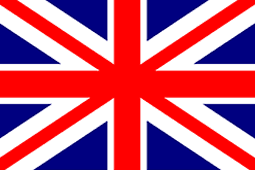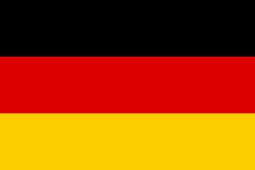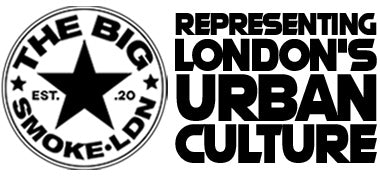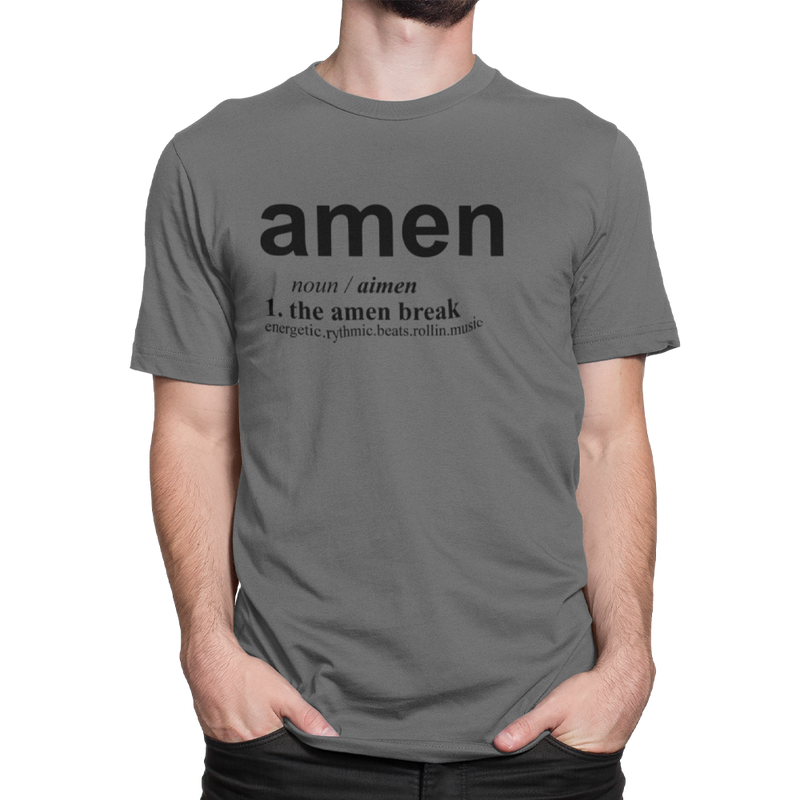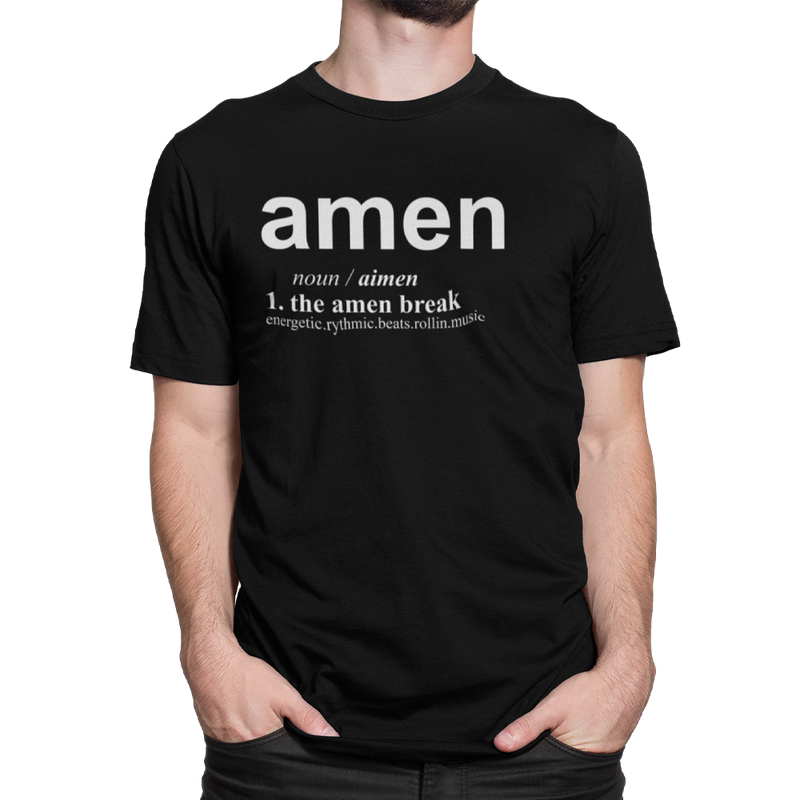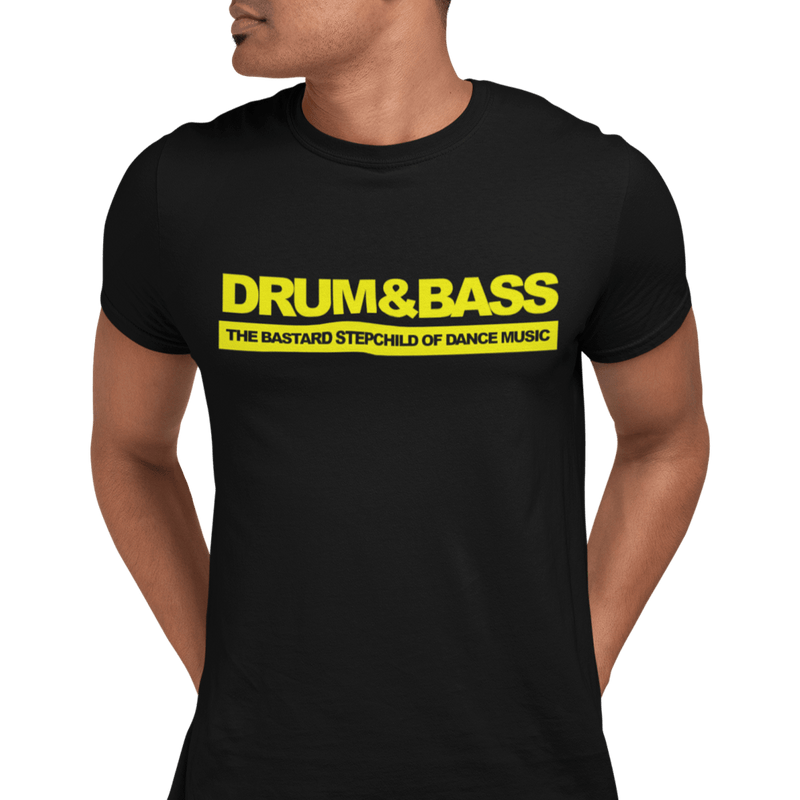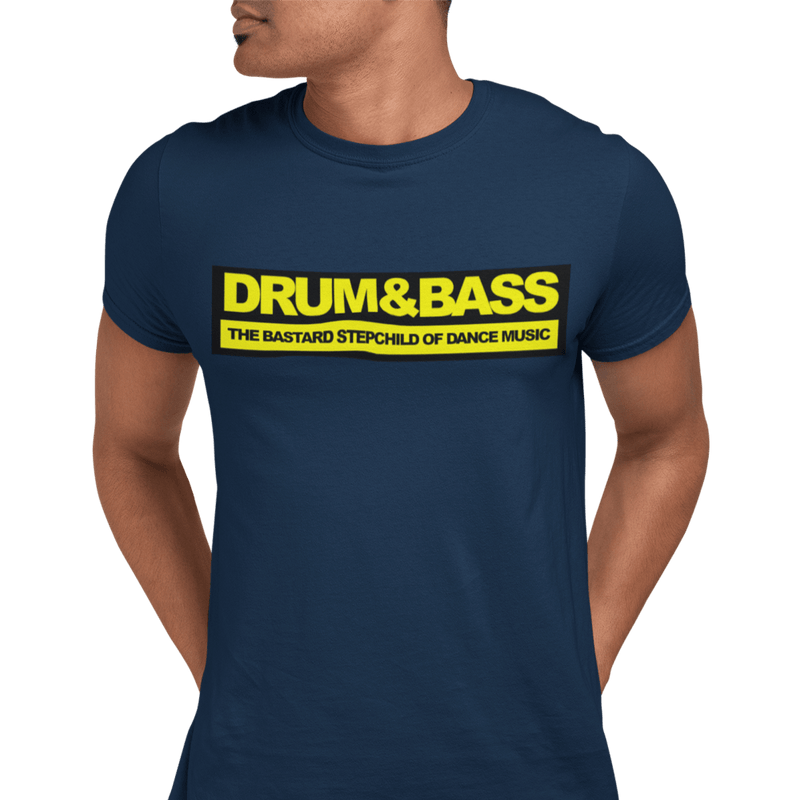Why Was London So Important For The Evolution Of UK Electronic Dance Music Part 1
This great city that we call "The Big Smoke" of London is famous for many things. London is an ancient city that was founded by the Romans around 40 AD that was originally made up of two cities. The City of London, and The City of Westminster.
London is the capital of England and the United Kingdom, which is one of epicentres of Global Trade which dates back as far as its Roman origins.
London plays an important part in UK politics, where the Houses of Parliament, and the House of Lords are located. London is also famous for many iconic buildings.
Buckingham Palace, Big Ben, The Shard, and The London Eye to name a few of its famous attractions.
London also plays a very important part in the evolution of UK Electronic Dance Music (EDM), and has been the birth place of music genres and sub-genres within its own right.

Let's go on a musical journey to shed light on "Why Was London So Important For The Evolution Of UK Electronic Dance Music"
1988 is seen as the year of "The Summer Of Love", where illegal Acid House warehouse parties where frequenting the M25 belt on a Saturday night. The DJ's played EDM from across the board which was mainly music that was imported from the US, and Italy. Detroit House, Balearic House, Techno, Hip House, and more obscure downtempo Leftfield Dance Tracks.

All of the big name DJ's of that era played under roof at these illegal warehouse raves. Colin Dale, Carl Cox, Judge Jules, Fabio and Grooverider, Trevor Fung, Paul "Trouble' Anderson, and Evil Eddie Richards to name a few.
Music production from the UK was heavily influenced by the pumping sounds of house music that was being imported from the US. The UK had not yet created its own identity of EDM. If anything, some of the UK produced tracks were actually initially released in America and shipped back to the UK in shrunk wrapped record sleeves.
Two of the biggest UK produced tracks of the era was "Salsa House" by Richie Rich, and "Voodoo Ray" by A Guy Called Gerald. Both track were released as US imports which may have encouraged UK DJ's to purchase these tracks thinking they they where US artists, and not from the UK.

In 1989, music that was being produced in the UK was starting to evolve and was and was starting to create it's own identity. Producers where experimenting more with Low Frequency Basslines, and also started to introduce analogue bleeps and sampling hip hop breakbeats.
One of the first producers from London that started to introduce breakbeats into their tracks producers Smiley and PJ aka Shut Up and Dance who where based in Stoke Newington, North London.
The duo released the warehouse rave anthem in "£10 To Get In" back in 1989. This was quite a stand out track for it's time, as it wasn't produced in the typical house "4 to the floor" format that everyone was accustom to. They later went on to sign the dancehall MC duo The Ragga Twins that released a track entitled "Hooligan 69" which again was a huge success. They also produced the anthem " I'm Raving, I'm Raving" which was able to achieve national chart success.

By the turn of the 90's, the government had clamped down on illegal warehouse raves, and where issuing heavy fines to any promoters that where caught organising unlicensed events.
As a result, rave scene moved into the nightclubs and large licensed indoor and outdoor venues. This was also a period where the rave scene started to split and the name headline DJ's started to move into their own chosen music genres.
DJ's Fabio and Grooverider where regularly seen headlining many of the illegal warehouse parties during the "Summer of Love". In 1991 they became resident DJ's to a weekly Thursday night event called Rage at Heavens in Charring Cross.
This weekly event became a testing ground for cutting edge EDM. Their weekly DJ residency in the heart of London played a vital part in shaping the sound of UK EDM back in the early 90's.

The duo where notorious for playing music with heavy melodic basslines, and during their DJ's sets, they would experiment by mixing sped up hip hop breakbeats over US produced techno tracks. Many up and coming and established record producers would come to this weekly event for musical inspiration, and for insight on how the underground EDM scene was evolving.
One of the biggest tracks of that era championed the UK breakbeat sound with heavy melodic basslines was by a producer from East London who produced under the alias of Lennie D Ice who released the iconic track "We Are IE".

This track had the essence of reggae with it's bouncing heavy bassline, and gunshot sound effects. This track still gets played at events to this day, and most definitely is a keynote track that helped to steer the evolution, and to create an identity for UK EDM.
The early 90's was an important era in the evolution of UK EDM. Studio equipment was becoming more affordable and accessible to up and coming music producers which lead to a wave of ideas and creativity.
DJ's were also becoming music producers and record label owners themselves, which mean that they could priortise in playing their own music on the radio and at events instead of the imported music that was available in the record shops.
The early 90's also saw a surge of music that was being imported from Belgium which had more of an industrial sound with heavy "4 to the floor" kick drums, and very hard hitting stabs, and effects.

One label from Belgium that had a major influence on music that was being produced in the UK was R&S Records. One of the biggest hits to come from the label is a track by Joey Beltram called "Energy Flash" This track was played at all of the major events in the early 90's, and is ranked as one of the greatest EDM tracks of all times.
This industrial sound influenced music that was being produced in the UK and paved they way for that sound of Hardcore Rave music that was championed by record labels and music producers based in the Suburbs of Essex.

Artists like SL2, The Prodigy, and record labels like Suburban Base took the sound of hardcore music to national chart success and famous around the world.
Meanwhile in London, music producers where influenced by the Belgium Techno sound of the early 90's but where also adding more elements of reggae. This is the pioneering era of Jungle and Jungle Techno.
One label that stands out for pioneering the early sounds of Jungle Music is Ibiza Records. Founded in 1989, Ibiza Records based in North London was one of the first record labels that gave London Underground EDM a title and an identity.
There was a wave of producers that where fusing hip hop breaks with techno stabs and reggae influenced basslines, but Ibiza Records is seen as the first record label to consistently use the phrases of Jungle and Jungle Techno music.

Some of the music prolific music producers at that time started their music production careers at Ibiza Records. Potential Bad Boy, Noise Factory, and Terry T to name a few where some of the main featured artists on this iconic label.
Record Label CEO Paul "Ibiza", has been as one of the key people that help to create and evolve the sound of jungle music in the early 90's and is still seen as a key contributor to the sound of modern jungle music to this day.
The mid 90's was and era where jungle music had become a music genre within its own right and was the turning point where the UK had an identity for its own music genre. For many years, EDM producers and artists emulated music that was being made in the US and other parts of the world. This was the first time in history that EDM producers from other part of the world were trying to emulate music that was homegrown in the UK.
Records like Philly Blunt, Movin' Shadow, Reinforced, Renk Records, Formation Records, Tom and Jerry, Ganja Records, and De Undergrounds to name a few where some of major independant jungle record labels of that era.

One label in particular that played a major part in pioneering the sound of Jungle music in the mid 90's was the iconic record label Congo Natty.
Label owner Mike West aka Rebel MC's music career goes back to the mid 80's. Born and raised in North London, Mike West was amongst the wave of Soundsystems that were more notorious for playing soul, hip hop, and rare grooves.
Mike later got involved into music production in the late 80's and reached national chart success with the hip house track called "Street Tuff" that was signed to Desire Records. Mike then went onto realise his debut album "Black Meaning Good" which also achieved chart topping success.
Mike later decided that he no longer wanted to work with corporate record labels and decided he wanted to go independent and launched Congo Natty Records in 1993.
Congo Natty Records had a stream of iconic jungle tracks featuring the late Tenor Fly, Peter Bouncer, Top Cat, and Super Cat to name a few. Congo Natty aka Rebel MC's string of jungle hits from the mid 90's still smash up the dance floors to this day.
During the early 90's, the sound of UK EDM rapidly evolved and changed as people could afford to purchase and build their own own studio's. AKAI S1000 samplers, and Atari ST's loaded with Cuebase where industry standard in most producers home studio's.
But not only was the sound of EDM music was evolving, but the way that DJ's where able play exclusive records was changing also.
In the late 80's (the era of "The Summer of Love"), DJ's would frequent the record shops in the West End of London to purchase the latest US imported house tracks. If a DJ was really lucky, he or she might have got themselves a copy of a US imported promotional copy of a forthcoming record release.

If the track became a huge success through the underground rave scene, it would get licensed to be released in the UK to one of the major dance music record labels of the time. Champion Records, XL Recordings and FFRR where 3 of the biggest UK EDM record labels at the time that released to of the biggest rave anthems of that era.
Independent record label owners from the UK would press up a limited amount of white label promos, that would be given to a handful of DJ's to promote either on the radio or at the warehouse raves. This was all about to change.
Let it be known that UK EDM music has been strongly influenced by Jamaican Sound-system Culture from the 80's. Sound systems in Jamaica would challenge other sound systems, by seeing which sound system could play music at the lowest frequencies, and also my which soundsystem had the most exclusive tracks. The Jamaican Sound Systems used to press up one copy of a track of a 10 inch metal record coated with a compound known as an acetate that where called "Dubplates"
In the early 90's some of the London based UDM record labels started cutting one off dubplates for the DJ's to test out on the radio and at major events. This also gave the DJ's more exclusivity for playing certain tracks, so was a win win situation for the record label owner and the DJ.

The place where the majority of music producers and DJ's would go to cut their dubplates was at a company called Music House that was situated in Holloway, North London.
In those days, music was recorded onto Digital Audio Tape which where often referred to as a DAT. The music from the DAT was then run through an mixing desk where it would get a final EQ and relayed onto the acetete. In it heyday, Music House became point for all top name DJ's, producers, and record label owners. Producers would leave their DAT's for the DJ's to cut, and some DJ/Producers would often exchange DAT's with other DJ's to ensure that they had the freshest track to play that the scene had to offer.
While Jungle Music was taking the nation by storm in the mid 90's, a sub-genre was emerging at a weekly Sunday event in the heart of Hoxton in London.
Metalheadz at Blue Note in Hoxton, was a weekly event that was founded by the CEO of the iconic Metalheadz label Clifford Price aka Goldie. Goldie launched this weekly event where music producers could hear the latest cutting edge musical prototypes, as he felt that the jungle scene was not catering for all styles of music that was being produced.

The label Metalheadz is recognised for releasing music with more of a darker feel, and that music that doesn't necessarily conform to the norm. The night started at 7:00pm and finished at midnight with resident DJ's on weekly rotation.
Grooverider, Doc Scott, Fabio, the late Khemistry, Storm, Loxy, Ink, Dillinja, and Randall to name a few where resident DJ's at this Sunday weekly gathering.
The event started off as a small intimate event with a select amount of dedicated music followers, that later turned out to be one of the most influential events to shape and evolve the sound of drum and bass music.

Metalheadz is one of the of the music iconic records in drum and bass music and label owner has help to turn an underground music genre into an established genre within it own right.
Over the 25 years that Goldie has been a record producer and label owner, his first album "Timeless" went gold and is one of the best selling drum and bass albums in history.
Goldie has also stared in feature films, created a limited edition range of DJ accessories with Louis Vuitton, and most recently performed at the closing of the Commonwealth Games in his home town of Wolverhampton.
The 90's was the era when the UK created its own identity as a force to be reckoned with in EDM and London made a major contribution towards that. This article is just the tip of the iceberg as to why "London is So Important For The Evolution of Electronic Dance Music"
As we move into the late 90's and into the millennium, we will unfold how the influence that London had on EDM was able to create global superstars.
How Electronic Dance Music Has Influenced Fashion
Since the dawn of time, there has always been a strong connection between music and fashion. If you think about any era of music, (past and present) there is always a style of clothing and fashion that identifies to that music genre. From the ripped jeans with chains, safety pins, and Doctor Martin Boots fashioned by Punk Rockers to the exotic frilly shirts worn by the New Romantics in the 80’s.
The Future of Music & Fashion
In the past 30 years, we have seen more collaborations with musicians and designer labels in the UK and the US. In recent years we have seen Kayne West, Cardi B, Pharrell, Beyonce, Travis Scott, Goldie, Lady Leshurr, Dave, and Stormzy collaborate with high-end fashion designers and sportswear brands.
In the past 30 years, we have seen more collaborations with musicians and designer labels in the UK and the US. In recent years we have seen Kayne West, Cardi B, Pharrell, Beyonce, Travis Scott, Goldie, Lady Leshurr, Dave, and Stormzy collaborate with high-end fashion designers and sportswear brands.
